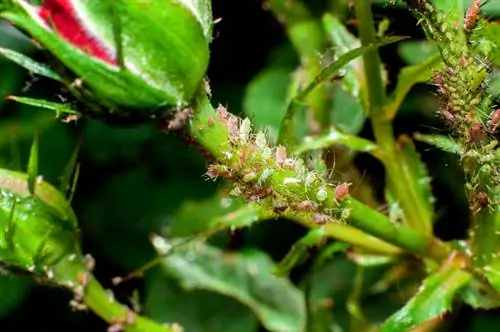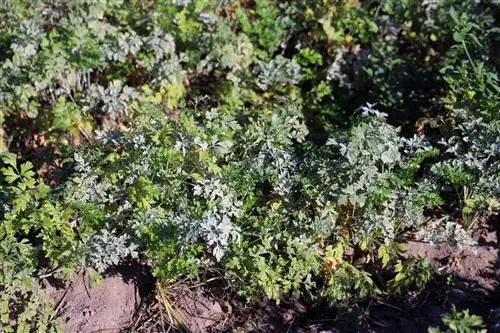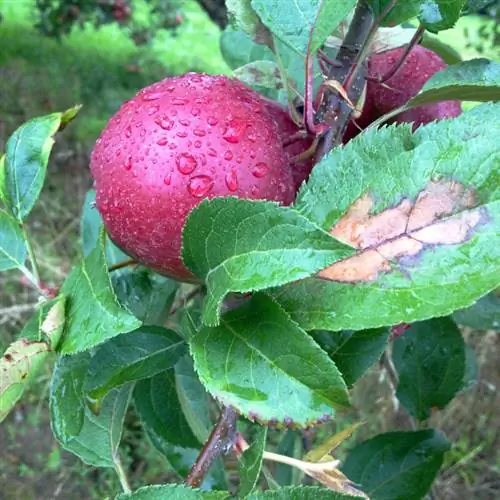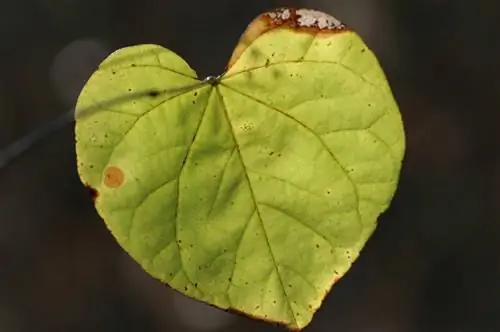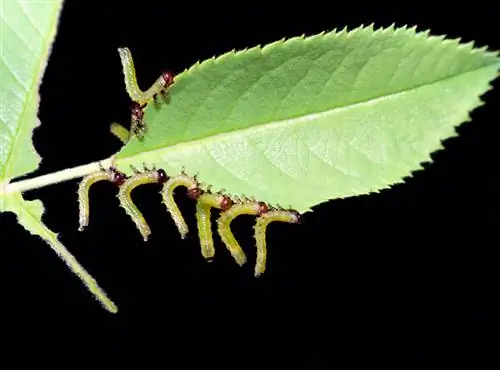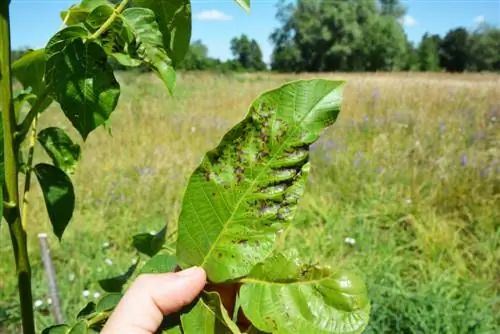- Author admin leonars@hobbygardeners.com.
- Public 2023-12-16 16:46.
- Last modified 2025-01-23 11:20.
The first signs of disease or pest infestation can usually be seen in late spring or even in summer. However, an infection often occurred months before, namely when the rose was still in hibernation. A lot of pathogens (especially fungi!) as well as harmful insects overwinter either on the rose itself or in the surrounding soil area. Hygiene is therefore extremely important, especially after an infection that has already been overcome the previous year, in order to prevent another illness.
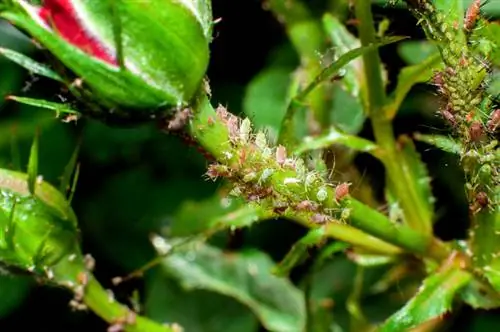
How can I prevent rose diseases in spring?
To prevent rose diseases in spring, remove fallen leaves, till the soil around the rose and use herbal tonics. Fungal spores and insect larvae can be reduced before they cause damage.
Fungal spores often overwinter in rose leaves
Star sooty mildew and rose rust are among the most common rose diseases. Although they can be combated quite well if noticed in time, they often reappear every year. The reason for this is usually a lack of hygiene, because the fungal spores overwinter on the underside of the leaves: if you look closely, you can see them as small black dots on the underside of the leaves. Therefore, not only should the infected rose leaves be removed, but the fallen leaves on the ground should also be carefully raked away, especially in autumn and winter. Do not dispose of this in the compost - otherwise this will develop into a new source of infection - but throw it in the household waste. Prune the roses properly in spring and strengthen them with herbal tonics (€83.00 on Amazon). He althy roses develop their own defenses with which they can defend themselves.
Kill insect larvae in the soil
The larvae of many harmful insects, such as the leaf roller wasp, the rose sawfly or the rose leafhopper, also overwinter in the soil and pupate there during the cold season. In spring, the cocoon finally hatches and the young pests lay their eggs again on the rose. To prevent this, work the soil around the roses thoroughly with a hoe in late winter and early spring, thereby disrupting the pupation of the larvae. To completely kill the animals, disinfect the soil with garlic or horsetail broth.
Tip
For many rose diseases, successful treatment depends on diagnosing the infection or infestation as quickly as possible and taking appropriate countermeasures. Otherwise, especially in severe cases, the only option left is to radically cut back the affected rose in the hope that it will survive the procedure. That's why you should check your roses regularly and carefully from the first shoots in early spring.

